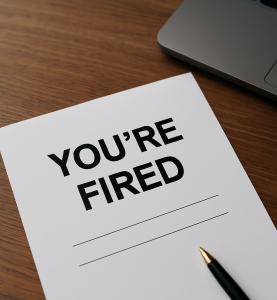There might be situations that arise sometimes where a company or individual harms you. When that happens, you might feel angry or upset. You may feel like you should get compensation of some kind for what they did to you.
In this article, we’ll discuss how the legal system protects you when a person or business harms you or makes you ill. You should know about these protections and your options if you’re ever in this situation.
You Can Sue the Person or Company
First, you should know you can sue the person or entity you allege harmed you. When you do, that means you’re bringing a civil action against that individual or company. Civil cases and criminal cases differ. If someone hurts you, the police may bring a criminal case against them, but that’s probably not your focus. You must handle the civil action, since you control that.
You can potentially get damages from the person or company that harmed you. Damages mean the money they pay you either through a settlement or a jury’s verdict in your favour. You can go after this person or company for economic damages, non-economic ones, or both.
You'll require a skilled lawyer who can explain your rights to you during your civil action. They can tell you whether you’re in a state that sets limits on how much you can get in non-economic damages. Various states have different rules about this. For instance, Georgia does not set a limit on non-economic damages, but some other states do.
Non-economic damages can come into play if you allege that a person or company harmed you and you went through pain and suffering because of their action or inaction. Non-economic damage sometimes becomes a rather nebulous concept.
You can easily put a price on medical bills you had to pay or wages you lost during your recovery following an accident or illness that someone caused. You might not feel sure how much money you should get for pain and suffering, though.
Your lawyer can help you in this area. They can look at precedent to help them determine what amount of money they’ll recommend that you try to get from the defendant. If they look at payouts from cases similar to yours, they’ll know what dollar amount you might reasonably expect from the company or individual who hurt you or made you sick.
You Can Testify in Court
The way you can sue a person or company probably represents the most significant weapon the law provides if you feel you should receive compensation for what you endured. The law can also help you before you ever step foot in a courtroom, though.
If you consult with a lawyer following an incident where you allege a person or entity hurt you or made you ill, you can explain to them what occurred. They can tell you whether, in their professional opinion, this person or entity broke any laws.
If they did, you might consider reporting their actions to the police if you feel that’s justified. As we mentioned previously, criminal and civil actions differ. As a private citizen, you can only pursue civil cases and not criminal ones.
However, if the legal system goes after the defendant for criminal actions, it’s often more likely you’ll win your civil case. The jury, if the case ever gets that far, will probably believe in the defendant’s culpability if they know this person or company has a pending criminal case for their actions as well as your civil one.
The law also affords you the right to testify in court during the trial, assuming the defendant does not extend you a settlement offer beforehand. The legal system holds this right sacred. It can benefit you significantly as a plaintiff in a civil action.
That is because you might want money to compensate you for what this person or company did, but you may also feel that telling your story and having your peers hear you matter just as much. Many times, when a person or business entity harms you, you’ll feel violated. Getting up in front of a judge and jury and relating the story of what you went through might represent catharsis for you.
You Can Demand Any Amount You Like
The legal system also gives you the right to ask for any amount of money you want as compensation following a situation where a person or entity hurt you or made you ill. While some states do have a limit they impose if you are asking for non-economic damages, you can potentially recoup any amount in economic losses, assuming you can prove them through documentation and other evidence.
That is a legal protection you might need in one of these scenarios. If you had to pay out of pocket for medical bills following someone hurting you, maybe that drained all of your savings. Perhaps you also had to get through a time when you couldn’t work if you had to recover at home following your illness or injury.
The legal system, assuming you win your civil action, can help you restore your finances. That might prevent you from losing your house or something equally devastating.
Know that if a company or person hurts you, you almost always have options from a legal standpoint. If you’re not sure about the best path forward, though, you should probably seek out a lawyer who’s skilled in the personal injury niche. The right attorney can hear your story, sit down with you, and explain your options. You should not think that you can’t do anything and must suffer in silence.
Often, if you can prove your assertion that someone’s action or inaction hurt you, then you can find a way to set things right. By telling your story and collecting financial compensation, you can often get yourself into a much better head space and move on with your life.





















